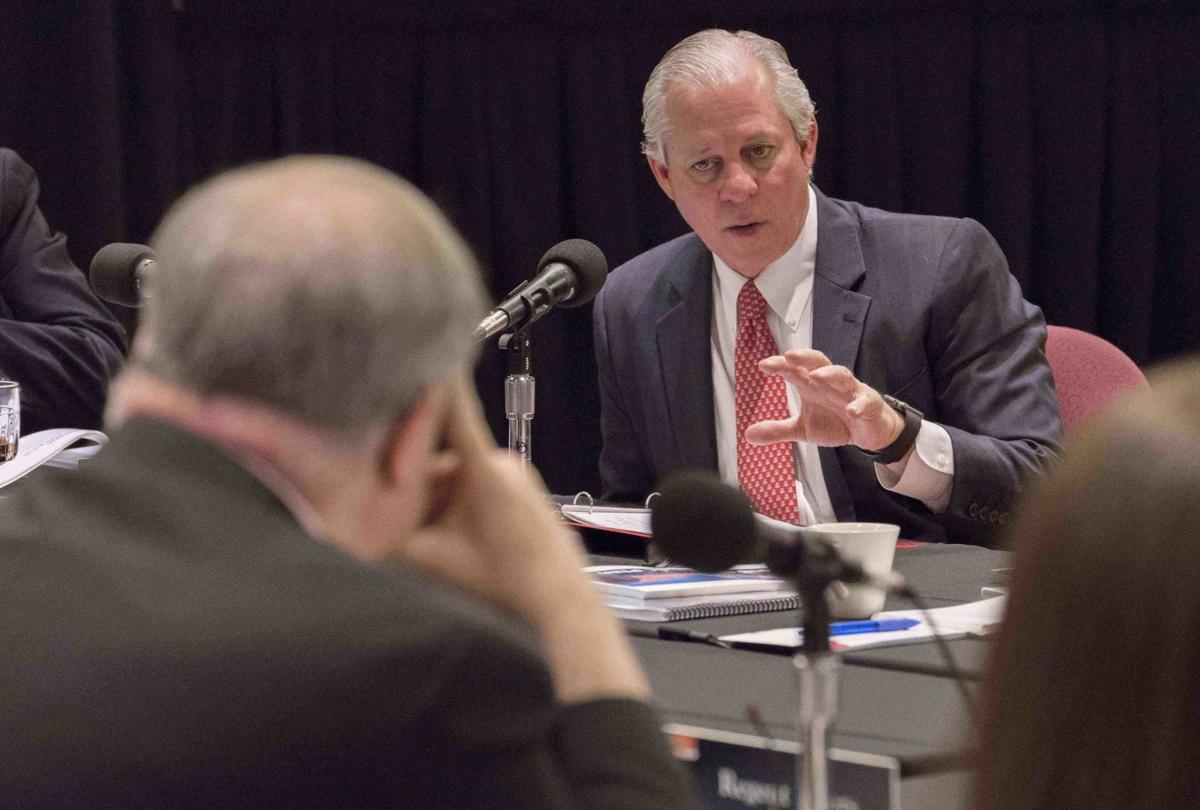The University of Arizona is cutting budgets and considering a hiring freeze to deal with what some members of the Arizona Board of Regents are calling a “financial crisis.”
The UA described its financial state to the regents on Nov. 2 and projected having just 97 days’ worth of cash on hand, its lowest since fiscal year 2013. The university must submit a report to the board by Dec. 15 outlining its plan to restore cash liquidity levels.
“Our financial health is fragile,” read one slide presented to the board by UA’s senior vice president and chief financial officer Lisa Rulney. “Hard choices are inevitable,” another said.
The cash flow issues, according to Rulney, stem largely from the university’s ambitious strategic investments towards financial aid and research.
“We have always assumed we had more time to dial back on strategic investments and prepare for the next opportunity and to build back our reserves,” she said. “It has become clear that our position is precarious and already turned downward.”
There has been a steady decline of days worth of cash on hand. In financial year 2021 the university reported 173 days of cash on hand, which decreased to 149 in fiscal year 2022 and to 110 in fiscal year 2023.
The UA initially forecasted having 156 days cash on hand for this fiscal year and presented that number to the board earlier this year, Rulney said. The method the university normally uses was significantly off, as the real number is 97.
Regents Chair Fred DuVal said the declining cash on hand is a “wakeup call.”
“We’ve got to turn this around,” he said. “Please don’t under club this crisis. Hit it. Turn this thing around.”
DuVal mentioned the possibility of postponing salary increases and reevaluating retirement programs.
“The urgency of reclaiming dollars and getting control over more of your budget is more present than ever,” he said.
Rulney reported that the university has implemented a 2% budget reallocation across the university for fiscal year 2024. When prompted by Regent Lyndel Manson, Rulney confirmed that the reallocation means a 2% budget cut.
The ABOR meeting took place just one day before UA President Robert Robbins and other university officials unveiled their $3 billion fundraising campaign, Fuel Wonder. The fund has already raised about $2 billion of its goal. Robbins told the board that none of the money raised in the campaign will go towards operating costs of the university, which would help the university with its cash on hand issue. Instead, the money will fund research, student life and financial aid, among other programs.
The university spends about $200 million on financial aid and merit money to attract high-achieving students, according to Robbins. The university has also spent money on what Robbins calls “moonshot programs,” which include funding research and discovery, according to the UA’s website.
“We made a bet on spending money,” Robbins said. “We just overshot.”
Robbins implied that the university may cut its four-year guarantee on tuition. The UA’s Guaranteed Tuition Program locks in undergraduate students’ tuition and fee rate for eight semesters, beginning with the term of initial enrollment.
“That’s a great differentiator for us, but if it’s going to cost us money, and it does, we’ve got to look at another hard decision,” Robbins told the board.
The UA’s athletics program also needs to be addressed, Robbins said.
“Athletics is a very difficult problem,” he said. “I have plans for almost everything and athletics is a really tough one given what’s going on right now.”
At one point he questioned the board, “Do we cut sports?”
Most athletic programs across the country are struggling right now, Robbins said. He pointed to Ohio State University recently loaning its athletic department $48 million to cover losses.
“It’s not sustainable,” he said, adding that fundraising for athletics has “underperformed” in recent years.
Regent Robert Herbold told university officials they should be in “panic mode” and there has to be something to “stop the bleeding.” He added that the UA may need to consider terminating some employees’ jobs.
“All bleeding stops eventually,” said Robbins, who is a cardiothoracic surgeon, prompting laughter from the board members. “That’s a basic tenet of cardiac surgery.”
VIDEO: Arizona athletic director Dave Heeke on building fan support for football and other sports: "Nothing better in football than a full stadium to make such a powerful environment to help our team. It's worth a few points. It's worth a victory. It makes a difference." Video by Brett Fera/Arizona Daily Star





